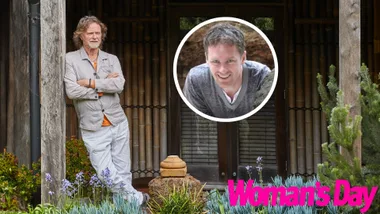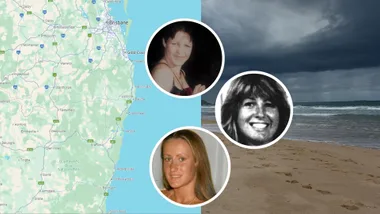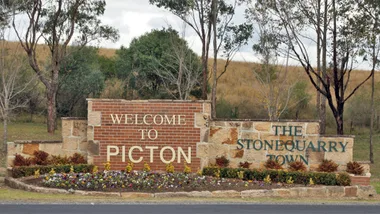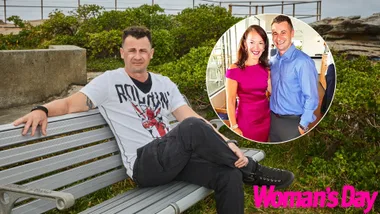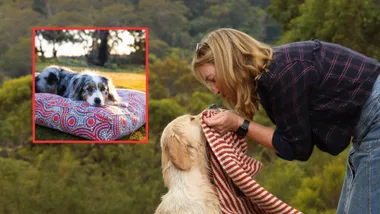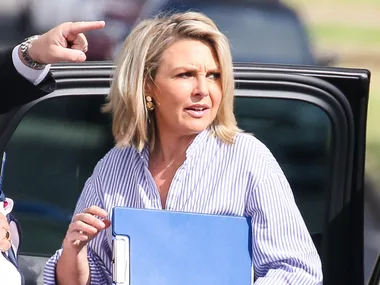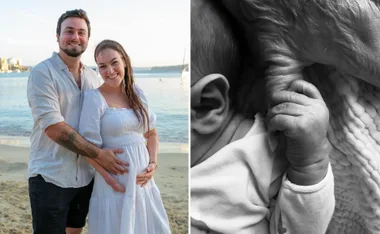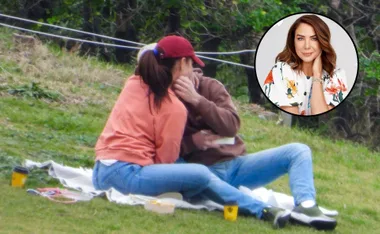THE ghastly truth about French peacekeepers in Africa is in danger of coming to light, although not if the UN can help it.
A UN whistle blower has been suspended after leaking a report that reveals in shocking detail the treatment of children at the hands of French troops, who are meant to be protecting them.
The Guardian, which has secured a copy of the report that is stamped confidential on every page, says it details “rape and sodomy” of boys as young as nine. It says the UN’s “disregard” for the young victims is “appalling, but the awful truth is, this isn’t uncommon.”
Many of the boys are orphans, who went to the peacekeepers looking for food. They were raped in exchange for eggs and powdered milk. Some have fled UN camps and are now seeking to survive alone.
Other news you may have missed…
The baby girl whose body was found buried in the sand at South Maroubra Beach in Sydney’s Eastern suburbs last year has been given a funeral service.
Filomena D’Alessandro, a local who “unofficially adopted” the little girl with her husband Bill Green, has named the baby, ‘Lily Grace’, according to the ABC.
The mother of ‘Lily Grace’ has never been found by police.
More than 100 people attended the funeral service held in the Eastern Suburbs Memorial Park and ‘Lily Grace’ was buried in a new site for children with unknown identities.
“It had to be done, [I’ve] been a mum, couldn’t overlook it and I think everyone felt the same. As a community we had to step forward and take responsibility for this little baby,” D’Allessandro told the ABC.
“She had such a miserable, short entry to the world – we don’t know exactly what happened – and we just thought she was going to end up with a pauper’s funeral and that was just not right for a small child.”
And why ‘Lily Grace’?
“We chose Lily for being a water flower – a pretty, simple water flower. And she was found on the beach so it was fitting. And we chose Grace because hopefully she’ll have a graceful exit.”
And she has, thanks to “unofficial parents” like these.

In other news you may have missed..
AUSTRALIA’s relationship with Indonesia – a nation we once called friends – has been torn asunder by the brutal execution of two of the Bali Nine.
Most Australian newspapers today feature pieces about the two young men in their final hours.
The Sydney Morning Herald has extracts of emails
sent by Myuran Sukumaran to the reporter, Michael Bachelard over many years.
“He was a remarkable character and a good man,” Mr Bachelard writes.
The letters reveal that Myu as he was known was mainly worried about his Mum. He started every conversation by asking how she was.
“He would have been outraged that she was virtually trampled by the media on the eve of his execution,” Mr Bachelard writes.
In one of his final letters, written while his mother sobbed on the floor of his cell, Myu said: “We did wrong. We know that. (But) we have changed … all the big drug dealers are free, because they pay people. It’s the one thing Andrew and I can’t do: pay big money.”
The Daily Telegraph has extracts from Andrew Chan’s diary, which reveal that he died in his beloved Penrith Panther’s jersey.
Andrew was a fanatical Panthers fan. His first questions to reporters were always about the NRL.
“Do u know how much I actually love the game???” he wrote, “It seriously has brought some good smiles to my face dispute my circumstance.”
His family taped every game, and sent the tapes over, so he could “feel like the average Australian, watching the Friday night game.”
In the final weeks of his short life, Andrew fell in love and got married. In one of their last exchanges, the journalist Phil Rothfield wrote: “You know I’m going to tell the world what a decent person you are.”
Andrew replied: “Thanks but can you just look after my brother Michael.”
RAGE over the execution is fast translating into questions about why Australia provides so much support to a nation whose values are so different from our own.
The Telegraph reports that Australia sends $650 million in aid to Indonesia every year, plus one million tourists. Our embassy in Jakarta is larger than the embassy in Washington DC.
The Telegraph quotes Defence Minister Kevin Andrews saying the brutal execution of two young drug traffickers – 30 rifles aimed at targets on the men’s hearts – was a “deliberate, calculated snub to Australia.”
A former Australian ambassador to Jakarta, John McCarthy, said public anger against Indonesia was stronger than at any time he could recall since the intervention in East Timor – where Indonesia behaved appallingly – in 1999.
“It’s been pretty awful this stuff,” Mr McCarthy told The Australian. “Whatever your views on the death penalty, and whatever your views on drugs, this has been a pretty awful performance.”
In other news, The New York Times reports the death of the quirky founder of Weight Watchers, Jean Nidetch, at the age of 91 (and, according to friends who saw her recently, weighing just 61 kilograms.)
Jean grew up addicted to biscuits (they call them cookies in Florida, where she lived) and marshmallow, which gave her a pumpkin shape. Her life changed when she went the supermarket one day, and a friend said: ‘Jean, you look so good! When are you due?’
She was not pregnant.
Jean got together with her overweight husband, and two fat friends, and formed Weight Watchers in a room above her flat. The concept was a simple one: weigh in together, share tips, urge each other on, in the journey toward weight loss.
She firmly believed that eating was an emotional response to an emotional problem. The company was sold to Heinz for $71 million, in 1978.
AN elderly farmer accused of raping his wife – who, he was told, could not consent because she had dementia and lived in a nursing home – has given his first extensive interview about the ordeal.
In a series of questions and answers with The New York Times, Henry Rayhons, 78, talked about his “loving relationship” with Donna, who died last year.
Mr Rayhons was charged with rape shortly after Donna’s death, after staff at the nursing home saw him pull a curtain around her bed, while he was in there. He was cleared of any wrongdoing.
In the interview, Mr Rayhons said Donna first started “going downhill” in 2013 but neither of them minded, because she was happy just to be beside him on their farming property, tending to their honeybees. Over time, she went into the nursing home, and although she “always liked a snuggle” he never had sex with her there “because we were around people.”
The couple met at church in 2007. Both were then widows, and some of Donna’s children did not approve of their union.
Mr Rayhons said dementia did not take from Donna her love of a kiss and a cuddle, and he added: “Her love for me never changed in any way, shape or form. I was the person she loved from the day she married until the day she died.”
YOU get divorced and of course you want to protect the kids from the fall-out, but what is the best way to do that?
A new study suggests that shared parenting – which has been the gold standard in Australia for more than 20 years now – is best.
The report titled ‘Fifty Moves A Year’ looked at children who split their time between Mum and Dad after divorce, and found that they slept better, suffered fewer headaches, tended to eat better and reported less stress and sadness than those who lived mostly with one parent.
The result surprised researchers, who expected kids who moved around a lot – the so-called ‘suitcase generation’ – to be more stressed and unhappy. That said, those kids who lived with both parents (ie: whose parents weren’t divorced) were the least stressed of all.


